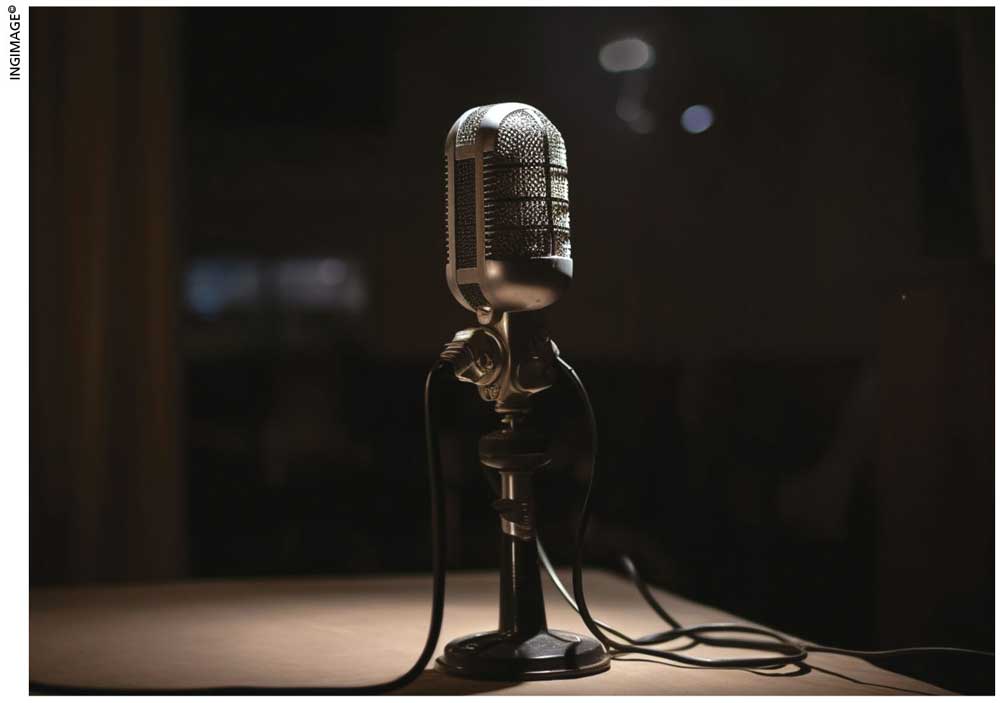FOR YOUR LISTENING PLEASURE
Ruwandi Perera finds more than a few good reasons to tune into podcasts

Are you on the ‘Video Killed the Radio Star’ team? Or do you still love radio and go gaga over it? The UN lists 13 February as World Radio Day… but isn’t radio dead? Haven’t digital and all things tech killed radio?
Finding answers to these questions will take a whole morning show – and we’re not taking sides! Yet, what’s intriguing is that the world has discovered podcasts – the perfect sweet spot that combines radio and digital!
Even if you haven’t listened to podcasts yet, you may have heard of them. Or you would’ve at least seen the headlines when Spotify famously discontinued Meghan Markle’s Archetypes podcast or Google announced that it would be shutting down the Google Podcasts app in April.
Podcasts are everywhere; and according to DemandSage, nearly 465 million people listen to them globally. What’s more, the industry is valued at almost US$ 24 billion. Everyone who’s anyone is either a host or guest on a podcast, from the velvet voiced Benedict Cumberbatch to the iconic Dolly Parton who hosts the show What Would Dolly Do?
So what is a podcast?
Simply put, it’s a series of digital audio files that you can listen to on any device of your choice. In other words, it’s something like on demand radio. From star-studded audio dramas to author read books recorded as episodes, and impulsive interviews to carefully scripted shows, there seem to be podcasts that cater to everyone’s fancies.
There are podcasts recorded as episodes in the presence of live audiences too, very much like television sitcoms. And as one would expect, some have blurred the line between audio and visual, and become ‘slidecasts’ or enhanced podcasts where the audio is combined with a slideshow or presentation.
Listeners flock to them because the cost of consumption is very low, if not entirely free. You’ll listen to podcasts sponsored by companies, which run commercial advertisements, and others that work on a paid subscription model.
How do you access podcasts?
I bet there’s an app already installed on your phone for this! Be it Apple Podcasts or Spotify, you can easily install a podcast platform on your phone and start listening.
If you’re thinking of hosting your own podcast, it’s easy and also free with certain podcast hosts. And why not? Podcasts are trending due to their ability to reach captive audiences, making them an ideal platform for niche listener segments.
The first thing to do when hosting your own podcast is to get on a hosting platform that will connect you with listeners. It’s as simple as establishing an account with a (free) podcast hosting platform, creating your show by entering simple details such as its name, description and an image or artwork to help identify it, and uploading episodes. You can record them on your phone or laptop; or if you’re serious about it, in a studio.
Your podcast host will store your episodes, generate an RSS feed for your show and share it with podcast directories to reach listeners.
Sounds simple and enticing?
Well then, get on a free podcast hosting platform (such as Buzzsprout, Podbean or Spreaker to name a few) and start recording your shows!
Of course, podcasts come with their own challenges, mainly around accessibility issues. Compared to other media platforms such as TV, YouTube or even radio, podcasts have technical, regional and linguistic barriers that can prevent them from reaching wider audiences, at least for the time being.
There are also content protection issues because podcasts are vulnerable compared to other forms of content. So when you share music, ideas and information, there’s no guarantee that your intellectual property won’t be stolen or borrowed, and republished as is or in a slightly modified form.
Podcasts may not be perfect but they seem to be getting there.
And while we may still like to sit back and listen to a radio show host taking us through the top 10 hits of the week, we might shift to preferring a more on demand listening experience.
After all, we’re guilty of betraying television for streaming, aren’t we? So what’s stopping us from doing it to radio?
